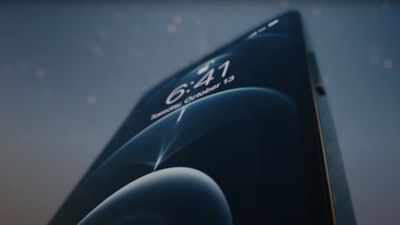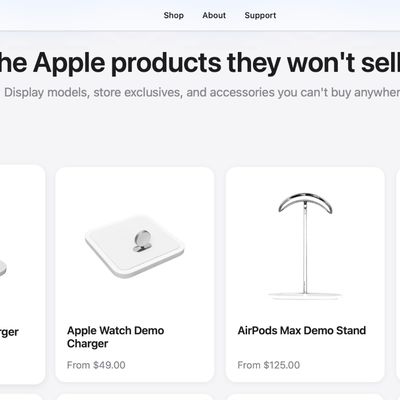iPhone 13 Pro Models Expected to Adopt LTPO Technology for 120Hz Display
Two out of four iPhone 13 models set to launch next year (presumably the Pro models) will use OLED displays with low-power LTPO technology, paving the way for a 120Hz refresh rate, according to Korean website The Elec.

The report claims that Samsung and LG will remain Apple's primary suppliers of OLED displays, which are expected to be used across the entire iPhone 13 lineup, with Chinese manufacturer BOE also aiming to win some orders. The displays are said to be "more technologically sophisticated" to manufacture compared to those used in iPhone 12 models.
LTPO technology would result in a more power efficient backplane, which is responsible for turning individual pixels on and off on the display. In turn, this could allow for a 120Hz refresh rate for more fluid scrolling and smoother motion without causing too much of a hit on battery life. Similar to recent Apple Watch models, LTPO could also enable iPhone 13 models to have an always-on display, and contribute to longer battery life.
While some rumors had suggested that iPhone 12 Pro models would support a 120Hz refresh rate, display industry analyst Ross Young accurately claimed otherwise, noting that the feature will be added alongside LTPO in 2021.
iPad Pro models have supported up to a 120Hz refresh rate since 2017 through a feature called ProMotion, which automatically adjusts the refresh rate depending on the content. A wide variety of Android smartphones now have 120Hz displays as well. If this report proves to be true, at least a few iPhone models will soon follow suit.
Popular Stories
Apple today confirmed to Reuters that it has acquired Q.ai, an Israeli startup that is working on artificial intelligence technology for audio.
Apple paid close to $2 billion for Q.ai, according to sources cited by the Financial Times. That would make this Apple's second-biggest acquisition ever, after it paid $3 billion for the popular headphone and audio brand Beats in 2014.
Q.ai has...
Last year, Apple launched CarPlay Ultra, the long-awaited next-generation version of its CarPlay software system for vehicles. Nearly nine months later, CarPlay Ultra is still limited to Aston Martin's latest luxury vehicles, but that should change fairly soon.
In May 2025, Apple said many other vehicle brands planned to offer CarPlay Ultra, including Hyundai, Kia, and Genesis. At the time,...
Apple recently updated its online store with a new ordering process for Macs, including the MacBook Air, MacBook Pro, iMac, Mac mini, Mac Studio, and Mac Pro.
There used to be a handful of standard configurations available for each Mac, but now you must configure a Mac entirely from scratch on a feature-by-feature basis. In other words, ordering a new Mac now works much like ordering an...
Apple today introduced its first two physical products of 2026: a second-generation AirTag and the Black Unity Connection Braided Solo Loop for the Apple Watch.
Read our coverage of each announcement to learn more:Apple Unveils New AirTag With Longer Range, Louder Speaker, and More
Apple Introduces New Black Unity Apple Watch BandBoth the new AirTag and the Black Unity Connection Braided...
A newly surfaced resale operation is seemingly offering Apple Store–exclusive display accessories to the public for the first time, potentially giving consumers access to Apple-designed hardware that the company has historically kept confined to its retail environments.
Apple designs a range of premium MagSafe charging stands, display trays, and hardware systems exclusively for displays in ...




















